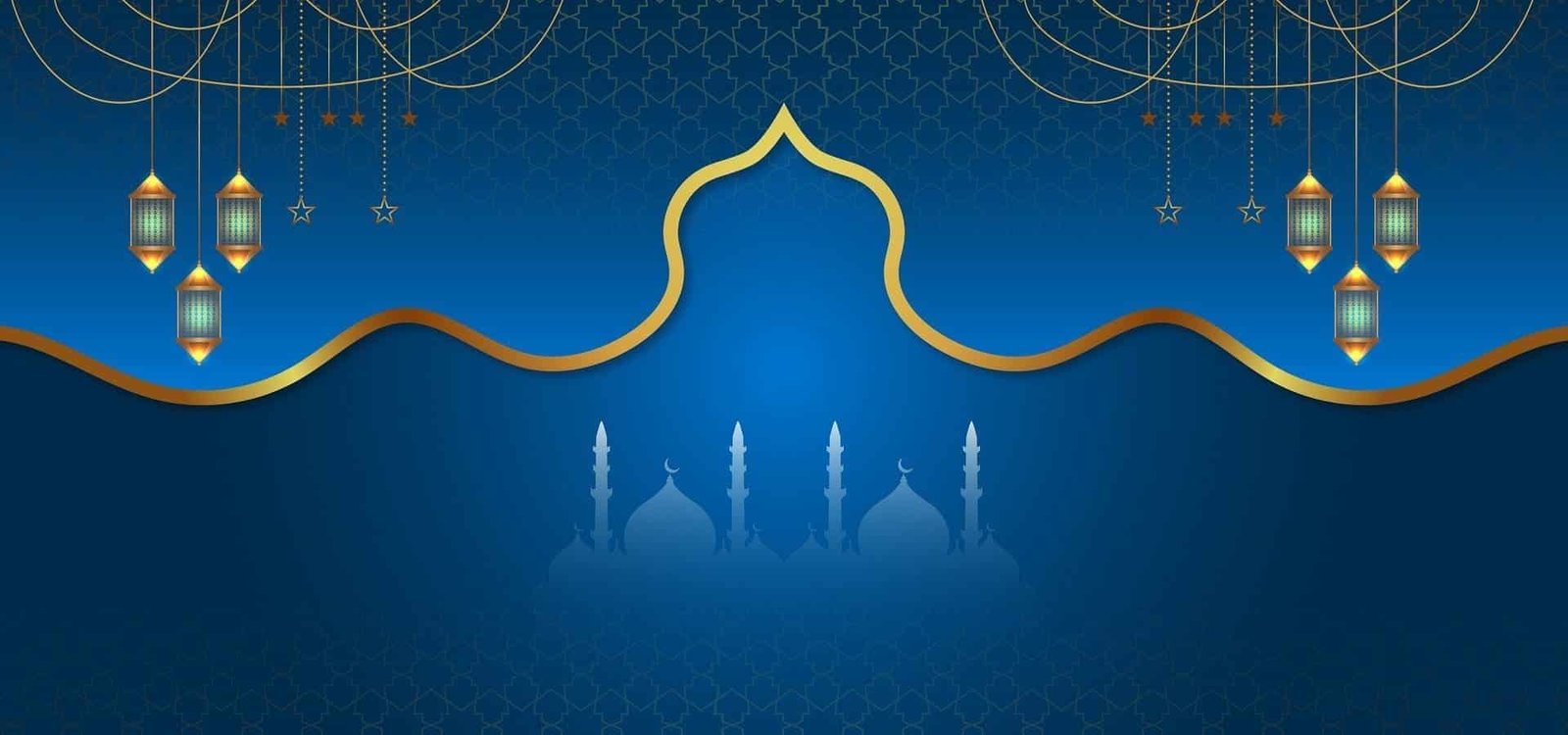The 99 names of Allah, also known as The 99 Names or The Names of Beauty, offer a distinctive approach in Islamic mysticism. Every name has a latent description of Allah, and it helps the faithful worship Him more intimately. These names have been mentioned in the Quran and Hadith, the conception of each of which symbolizes perfection, wisdom, mercy, and power of Allah. This article will explore the significance, purpose, value, and methods for deepening Muslim spirituality through the 99 names of Allah.
Exploring the Importance of the 99 Attributes of Allah
In Islam, Allah’s 99 Names signify His qualities and characteristics. They inform people about Allah and His relationship with creation. By being familiar with such names and meditating on them, the believer cultivates piety toward Allah and becomes aware of the infinity of His attributes.
Every name He is called tells us something about Him—Ar Rahman teaches us about his boundless mercy, and Al Adil informs us of His balance in all He does. Reciting and reflecting upon these names brings us closer to the knowledge of Allah’s will and strengthens our trust and reliance on Him.
Prophet Muhammad (peace be upon him) said:
قال رسول الله ﷺ: «إِنَّ لِلَّهِ تِسْعَةً وَتِسْعِينَ اسْمًا، مِائَةً إِلَّا وَاحِدًا، مَنْ أَحْصَاهَا دَخَلَ الْجَنَّةَ».
(صحيح البخاري)“Allah has ninety-nine names. The people who memorize them shall be the inhabitants of Paradise. (Sahih al-Bukhari). This explains why learning people’s names and trying to incorporate their meanings and values into society is essential.
Learn 99 Names of Allah with Meanings for Better Understanding
| 99 Allah Names | In Arabic | English Meaning |
|---|---|---|
| Ar-Rahmaan | الرَّحْمَنُ | The Beneficent |
| Ar-Raheem | الرَّحِيمُ | The Merciful |
| Al-Malik | الْمَلِكُ | The King |
| Al-Quddus | الْقُدُّوسُ | The Most Sacred |
| As-Salam | السَّلاَمُ | The Source of Peace |
| Al-Mu’min | الْمُؤْمِنُ | The Infuser of Faith |
| Al-Muhaymin | الْمُهَيْمِنُ | The Preserver of Safety |
| Al-Aziz | الْعَزِيزُ | All Mighty |
| Al-Jabbar | الْجَبَّارُ | The Compeller |
| Al-Mutakabbir | الْمُتَكَبِّر | The Supreme |
| Al-Khaaliq | الْخَالِقُ | The Creator |
| Al-Musawwir | الْبَارِئُ | The Fashioner |
| Al-Ghaffar | الْغَفَّارُ | The Constant Forgiver |
| Al-Qahhar | الْقَهَّارُ | The All-Prevailing One |
| Al-Wahhaab | الْوَهَّابُ | The Supreme Bestower |
| Ar-Razzaaq | الرَّزَّاقُ | The Provider |
| Al-Fattaah | الْفَتَّاحُ | The Supreme Solver |
| Al-‘aleem | اَلْعَلِيْمُ | The All-Knowing |
| Al-Qaabid | الْقَابِضُ | The Withholder |
| Al-Baasit | الْبَاسِطُ | The Extender |
| Al-Khaafidh | الْخَافِضُ | The Reducer |
| Ar-Raafi’ | الرَّافِعُ | The Exalter |
| Al-Mu’izz | الْمُعِزُّ | The Honourer |
| Al-Muzil | ٱلْمُذِلُّ | The Dishonourer |
| As-Samee’ | السَّمِيعُ | The All-Hearing |
| Al-Baseer | الْبَصِيرُ | The All-Seeing |
| Al-Hakam | الْحَكَمُ | The Impartial Judge |
| Al-‘adl | الْعَدْلُ | The Utterly Just |
| Al-Lateef | اللَّطِيفُ | The Most Gentle |
| Al-Khabeer | الْخَبِيرُ | The All-Aware |
| Al-Haleem | الْحَلِيمُ | The Most Forbearing |
| Al-‘azeem | الْعَظِيمُ | The Magnificent |
| Al-Ghafoor | الْغَفُور | The Great Forgiver |
| Ash-Shakoor | الشَّكُورُ | The Most Appreciative |
| Al-‘alee | الْعَلِيُّ | The Exalted |
| Al-Kabeer | الْكَبِيرُ | The Most Great |
| Al-Hafeedh | الْحَفِيظُ | The Preserver |
| Al-Muqeet | المُقيِت | The Sustainer |
| Al-Haseeb | اﻟْﺣَسِيبُ | The Reckoner |
| Al-Jaleel | الْجَلِيلُ | The Majestic |
| Al-Kareem | الْكَرِيمُ | The Most Generous |
| Ar-Raqeeb | الرَّقِيبُ | The Watchful |
| Al-Mujeeb | ٱلْمُجِيبُ | The Responsive One |
| Al-Waasi’ | الْوَاسِعُ | The All-Encompassing |
| Al-Hakeem | الْحَكِيمُ | The All-Wise |
| Al-Wadud | الْوَدُودُ | The Most Loving |
| Al-Majeed | الْمَجِيدُ | The Glorious |
| Al-Ba’ith | الْبَاعِثُ | The Infuser of New Life |
| Ash-Shaheed | الشَّهِيدُ | The All Observing Witnessing |
| Al-Haqq | الْحَقُ | The Absolute Truth |
| Al-Wakeel | الْوَكِيلُ | The Trustee |
| Al-Qawiyy | الْقَوِيُ | The All-Strong |
| Al-Mateen | الْمَتِينُ | The Firm |
| Al-Waliyy | الْوَلِيُّ | The Protecting Associate |
| Al-Hameed | الْحَمِيدُ | The Praiseworthy |
| Al-Muhsee | الْمُحْصِي | The Counter |
| Al-Mubdi | الْمُبْدِئُ | The Originator |
| Al-Mueed | ٱلْمُعِيدُ | The Restorer |
| Al-Muhyi | الْمُحْيِي | The Giver of Life |
| Al-Mumeet | اَلْمُمِيتُ | The Creator of Death |
| Al-Hayy | الْحَيُّ | The Ever-Living |
| Al-Qayyoom | الْقَيُّومُ | The Sustainer |
| Al-Waajid | الْوَاجِدُ | The Perceiver |
| Al-Maajid | الْمَاجِدُ | The Illustrious |
| Al-Waahid | الْواحِدُ | The One |
| Al-Ahad | اَلاَحَدُ | The Unique |
| As-Samad | الصَّمَدُ | The Eternal |
| Al-Qadeer | الْقَادِرُ | The Omnipotent One |
| Al-Muqtadir | الْمُقْتَدِرُ | The Powerful |
| Al-Muqaddim | الْمُقَدِّمُ | The Expediter |
| Al-Mu’akhkhir | الْمُؤَخِّرُ | The Delayer |
| Al-Awwal | الأوَّلُ | The First |
| Al-Aakhir | الآخِرُ | The Last |
| Az-Zaahir | الظَّاهِرُ | The Manifest |
| Al-Baatin | الْبَاطِنُ | The Hidden One |
| Al-Waali | الْوَالِي | The Sole Governor |
| Al-Muta’ali | الْمُتَعَالِي | The Self Exalted |
| Al-Barr | الْبَرُّ | The Source of All Goodness |
| At-Tawwab | التَّوَابُ | The Ever-Pardoning |
| Al-Muntaqim | الْمُنْتَقِمُ | The Avenger |
| Al-‘afuww | العَفُوُ | The Pardoner |
| Ar-Ra’oof | الرَّؤُوفُ | The Most Kind |
| Maalik-Ul-Mulk | َمَالِكُ ٱلْمُلْكُ | Master of the Kingdom |
| Dhul-Jalaali Wal-Ikraam | ذُوالْجَلاَلِ وَالإكْرَامِ | Lord of Glory and Honour |
| Al-Muqsit | الْمُقْسِطُ | The Just One |
| Al-Jaami’ | الْجَامِعُ | The Gatherer |
| Al-Ghaniyy | ٱلْغَنيُّ | The Self-Sufficient |
| Al-Mughni | ٱلْمُغْنِيُّ | The Enricher |
| Al-Mani’ | اَلْمَانِعُ | The Withholder |
| Ad-Dharr | الضَّارَ | The Distresser |
| An-Nafi’ | النَّافِعُ | The Propitious |
| An-Nur | النُّورُ | The Light |
| Al-Haadi | الْهَادِي | The Guide |
| Al-Badee’ | الْبَدِيعُ | The Incomparable Originator |
| Al-Baaqi | اَلْبَاقِي | The Everlasting |
| Al-Waarith | الْوَارِثُ | The Inheritor |
| Ar-Rasheed | الرَّشِيدُ | The Guide |
| As-Saboor | الصَّبُورُ | The Forbearing |
Discovering some of the Beautiful Names of Allah
While each of Allah’s names holds profound meaning, here are a few to illustrate their depth:
- Ar-Rahman (The Most Compassionate): This name symbolizes the magnanimity that Allah has bestowed on all his creations. When Muslims contemplate Ar-Rahman, they are urged to exercise tolerance and forgiveness for their fellow human beings.
- Al-Ghaffar (The Ever-Forgiving): Whoever turns over with sincere repentance shall be forgiven all their sins, no matter how great they were. He endorses forgiveness and tells us that he, the all-forgiving Lord, is the one who forgives.
- Al-Hakeem (The All-Wise): This name signifies that Allah is wise in all He does, has willed, or commanded. It encourages Christians to always rely on His decisions, knowing that every experience is in His plan.
- Al-Malik (The Sovereign King): Al-Malik proclaims that Allah is the supreme owner of all creations and the only one who has the supreme power to rule over all existence.
- As-Salam (The Source of Peace): When people think of this name, they will remember that real peace is only possible when people surrender to Allah. Peace and As-Salam then mean trying to achieve the same state within ourselves and our vicinity.
The Benefits of Knowing and Reflecting on Allah’s Names
Knowing and contemplating Allah’s 99 Names has numerous benefits for both spiritual and personal growth:
- Strengthening Faith: Learning Allah’s attributes enriches our faith in Him and boosts our obedience.
- Inspiring Good Character: People who read the Holy Quran also strive to emulate the virtues described about Allah, such as mercy, compassion, and justice.
- Building a Closer Connection with Allah: Praying these names or doing so during marital meditation helps believers feel the proximity of the individual they worship, Allah.
- Finding Comfort and Peace: Some names give hope when one is in trouble, reminding us of Allah’s kindness, guardianship, and care. For instance, recalling Al-Wali (The Protector) or Al-Latif (The Subtle, the Kind) would be helpful during trying times.
- Forgiveness and Repentance: Names like At-Tawwab (The Acceptor of Repentance) constantly help believers remember that Allah is ever willing to accept people when they turn to repent for their sins. Therefore, we need to be very careful in our conduct.
How the 99 Names Can Be Used in Everyday Life
Learning the 99 Names of Allah is much more than memorization; it is comprehension and implementation. Here are some practical ways to make these names a part of daily life:
- Recite and Reflect Daily: Spend a few minutes in your prayers, at least saying one or more of Allah’s names and thinking over their implications for your life.
- Practice What You Learn: Use the attributes in day-to-day activities. In response to Allah when remembering Ar-Rahim (The Merciful), this externality should be accompanied by gentleness when communicating.
- Seek Comfort in His Names: Recalling names that bring tranquility and protection during difficulty: Al-Mujeeb (The Responsive), As-Sabur (The Patient).
- Share the Knowledge: Explaining the message behind the 99 Names to other people enriches your understanding and gives faith and unity to family and friends.
- Incorporate in Supplications: Use names within personal supplications that are satisfactory to your current requirements. For instance, to seek guidance, you will call upon Al-Hadi.
Conclusion
The 99 attributes of Allah are of great strength and knowledge. Every name is an attribute of the Divine, and when adequately comprehended and meditated upon, it can change a person’s spiritual path. Besides, believers can receive comfort, wisdom, and direction through this name call.
For many people, using the names in their daily recall, in prayer, or in putting into practice those qualities of Allah proves a way to a more profound level of trust in the Almighty. Abiding by the name of Jesus draws one closer to Allah and attains a fulfilled purpose in all stages of life.



